Every Piece of Your Story Matters
Even those that don't fit the popular Christian mold.
It’s been said that every story has the same basic shape:
Think of Frodo’s path in the Lord of the Rings trilogy:
Beginning: Frodo Baggins, a humble hobbit living in the peaceful Shire, inherits the mysterious and powerful One Ring.
Conflict: The evil Lord Sauron, who forged the Ring, wants to reclaim it and dominate all of Middle-earth. The noble wizard Gandalf tells Frodo that he has to travel to Mount Doom and destroy the Ring.
Rising Action: Frodo sets out with a fellowship of allies, pursued by Sauron’s forces. Eventually, Boromir, another member of Frodo’s band, is tempted to take the Ring. This convinces Frodo he must continue on with only Sam, his hobbit friend from the Shire. Meanwhile, Sauron’s power grows and war spreads.
Climax: At Mount Doom, Frodo falters under the Ring’s power, but Gollum, a hobbit corrupted by it, seizes the Ring and falls into the fire, destroying it. Sauron’s tower collapses, and his army is defeated.
Resolution: Frodo returns home to the Shire, and peace returns to a weary Middle Earth. Scarred by the burden of the Ring, Frodo has sacrificed his previous contentment for a greater good.
Countless stories fit this structure. Famous ones like Star Wars and Harry Potter do. Most little-known stories do as well, at least those told in Western cultures. The form is so influential that the few stories that don’t fit it are usually purposeful efforts to subvert it. As such, they only reaffirm its dominance.
At some point, it struck me that nearly every Christian testimony I had heard likewise shared a common form:
To make sure I wasn’t imagining this, I tossed the idea out there in a note:
Below the fold, I continued: “I don’t mean to trivialize this experience.
Instead, I’m wondering what you think of it. Do you hear Christians tell this story? Is there pressure on believers to frame their lives like this?”
The responses include some of the most interesting and moving comments I’ve yet seen. Many people recognized how the story of the prodigal son from Luke 15 fits this pattern:
And many did, in fact, see that pattern of redemption reflected in their own lives.
But not all.
Some said, by all appearances, life was going well when they met Jesus. One shared how the lack of a clear-cut “rock bottom” in her story had caused her to doubt her own experience of God. Another had been trained at a youth camp to tell her story using this pattern even though she and most of her churchgoing peers didn’t relate to the narrative.
One commenter described how, growing up, she hadn’t merely felt the pressure to frame her story in the mold of the prodigal son. She believed that she needed to have that kind of story. And so she walked away from the Lord. For years. As she now puts it, “I’ve returned but the decision wasn’t worth the ‘testimony’ born from it.”
Experiences like that are heart-wrenching. And it’s perplexing that we pressure ourselves to frame our lives in any particular way. After all, the importance of our stories pales in comparison with the one we most need to be telling:
Reducing Jesus’ life to a few plot points oversimplifies it, of course. And even allowing for this “boiling down,” there’s no reason the events of his life would have to be framed this particular way.
We could also tell Jesus’ story like this, after all:
His life could be unfolded many other ways as well. And if Jesus’ life doesn’t fit one particular mold, why should ours need to?
After all, the stories of some Christians look a bit like this:
While others are more along these lines:
And countless other variations are possible. There isn’t just one pattern to the Christian life. Whatever twists or turns your story takes, it can be alive with God’s purposes.
Last week I wrote about Corrie ten Boom, a Dutch woman whose family hid Jews during World War II. Late in life, reflecting on the purpose of the past, she said, “Every experience God gives us, every person he puts in our lives is the perfect preparation for a future that only he can see.”
Keep in mind that this is a woman who saw Nazis occupy her homeland and was later arrested for protecting the lives of Jews. Although she survived the concentration camps, she had family members who didn’t.
Every experience God gives us. . .is the perfect preparation for a future that only he can see.
Those who encountered Corrie ten Boom in her later years remarked how, despite the horrors she’d endured, she still radiated love and forgiveness.
To most of us, developing that kind of Christlike character seems impossible. But Jesus plainly tells us how it’s forged.
If anyone would come after me, he must deny himself and take up his cross and follow me. For whoever wants to save his life will lose it, but whoever loses his life for me will find it.
Matthew 16:24-25
See, if you try to save your story, you’ll lose it. That is to say, attempting to white-knuckle steer it where you want it to go won’t work. Either you’ll never arrive where you intended. Or else you will, only to discover the destination disappointing. But if you fully lose your story in the Lord’s purposes, you’ll find a life that radiates with awe and joy. And however its particular contours refract God’s light, his glory will be wonderfully displayed.




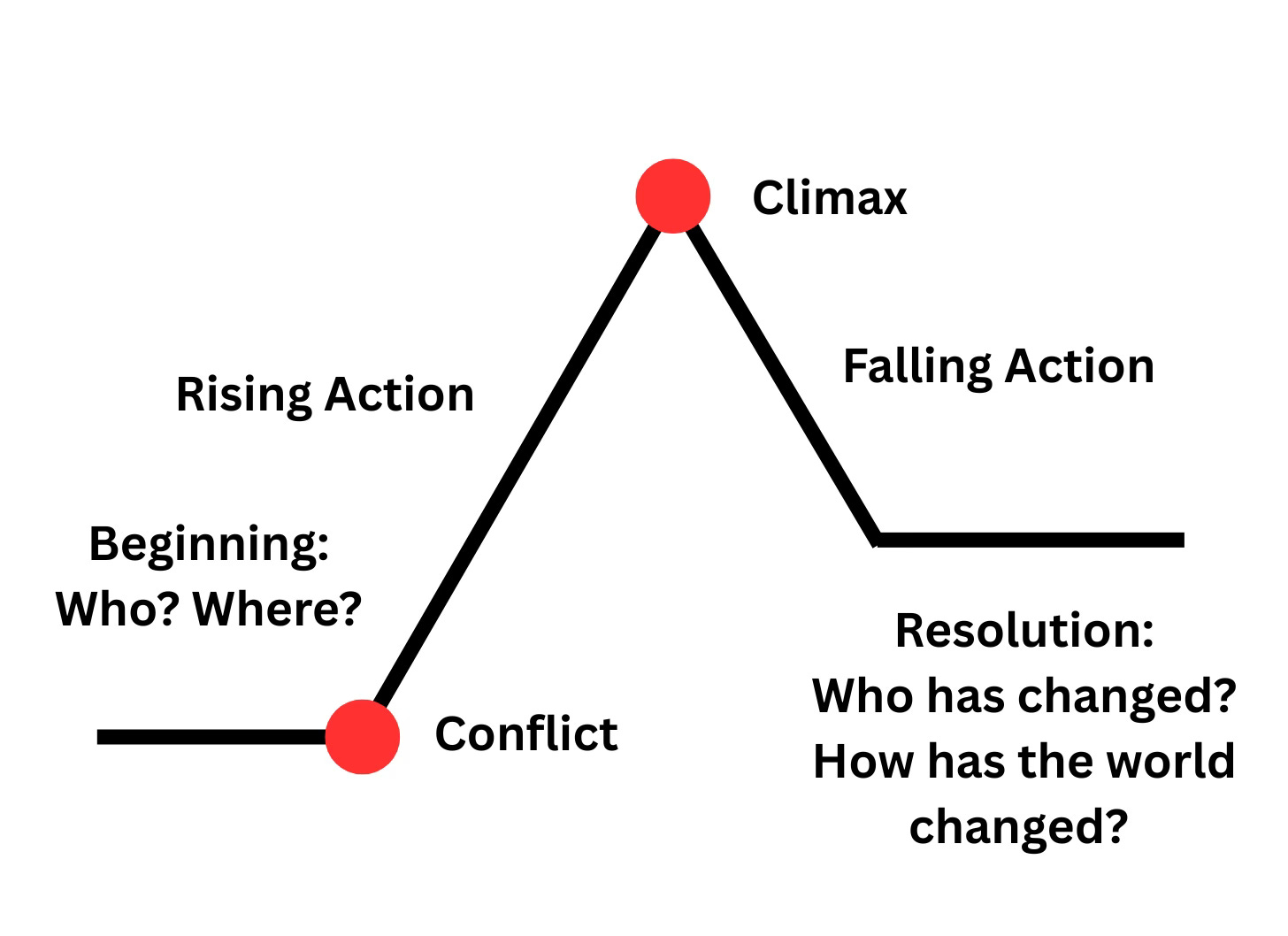
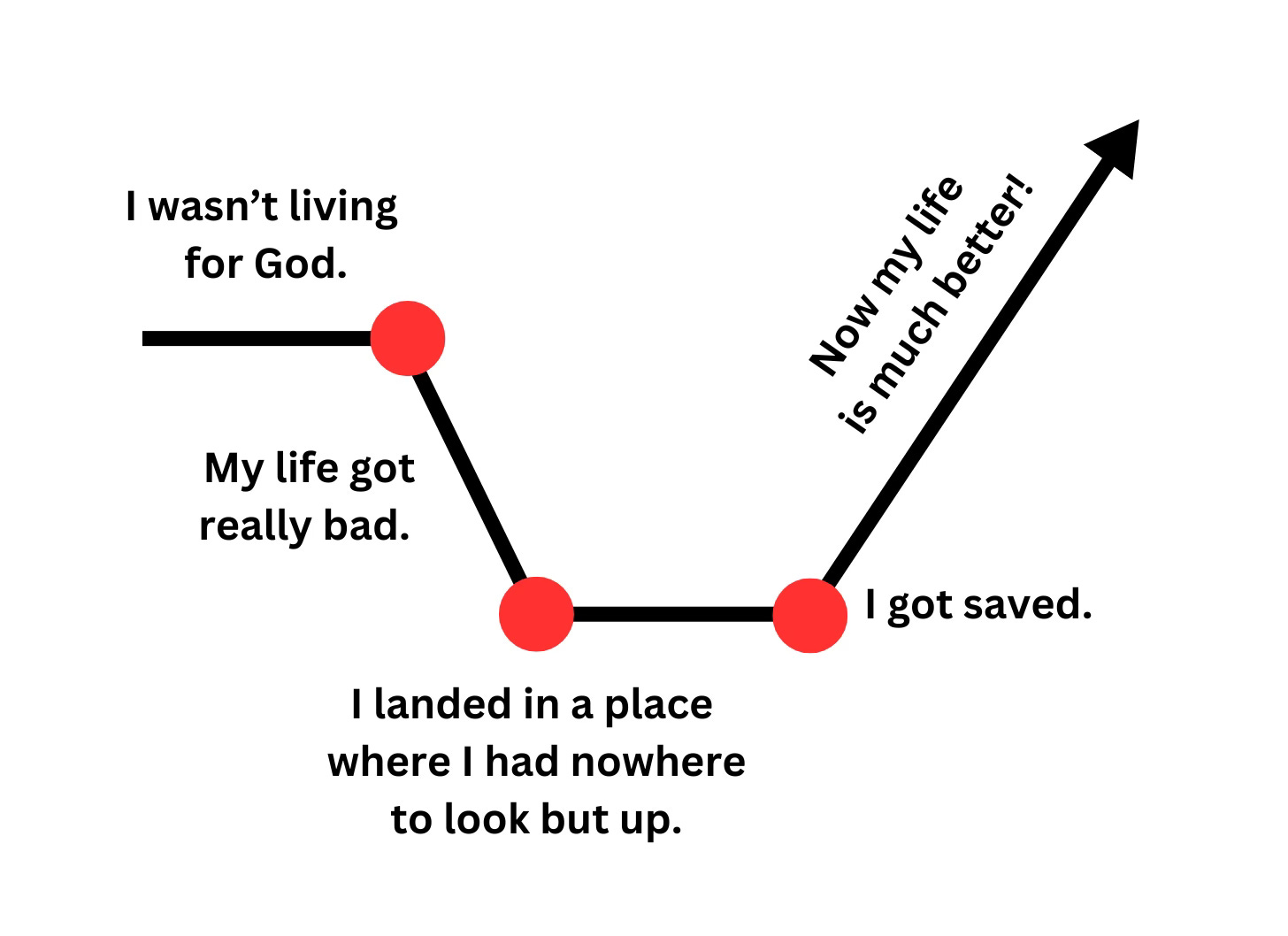
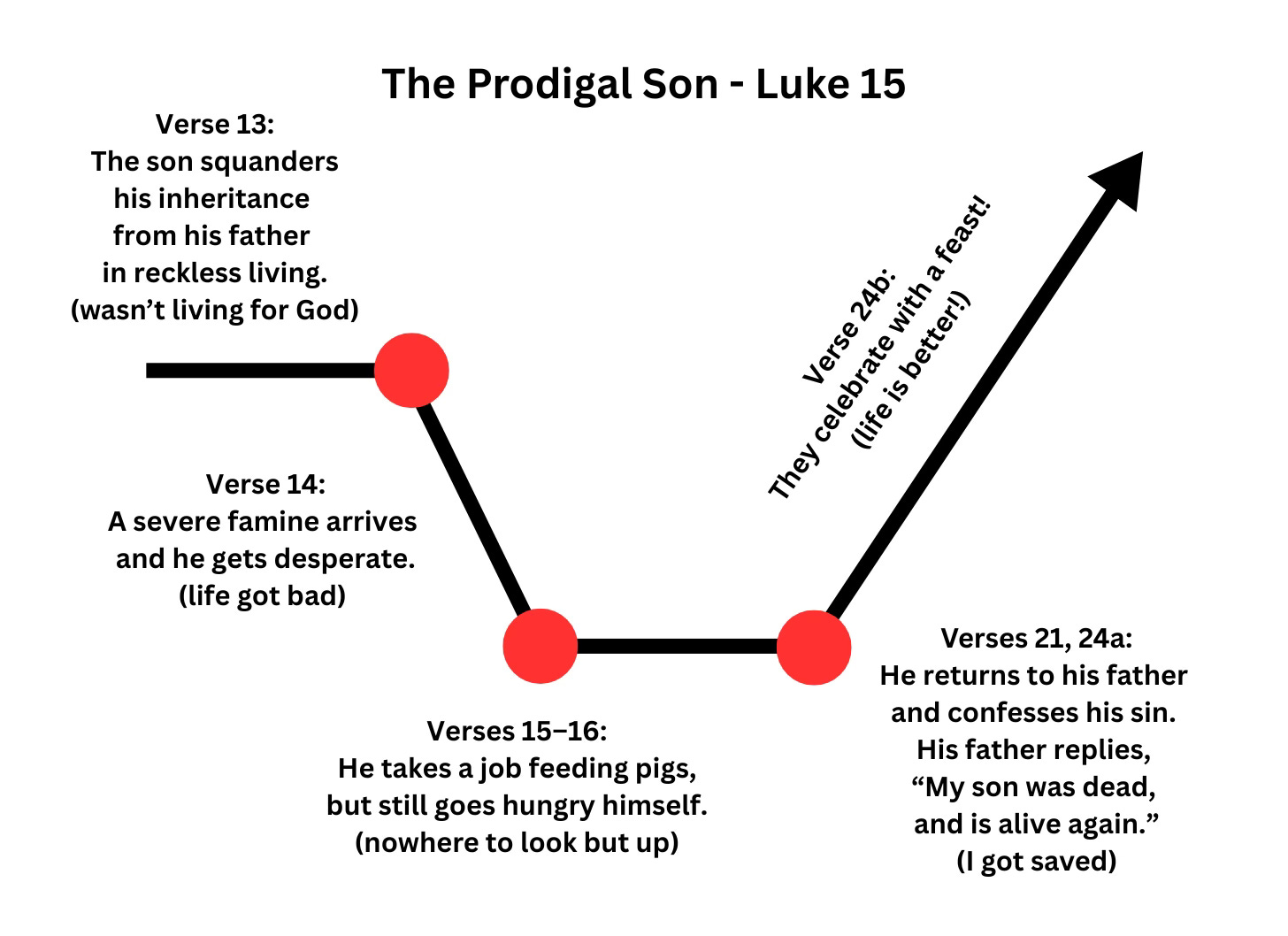
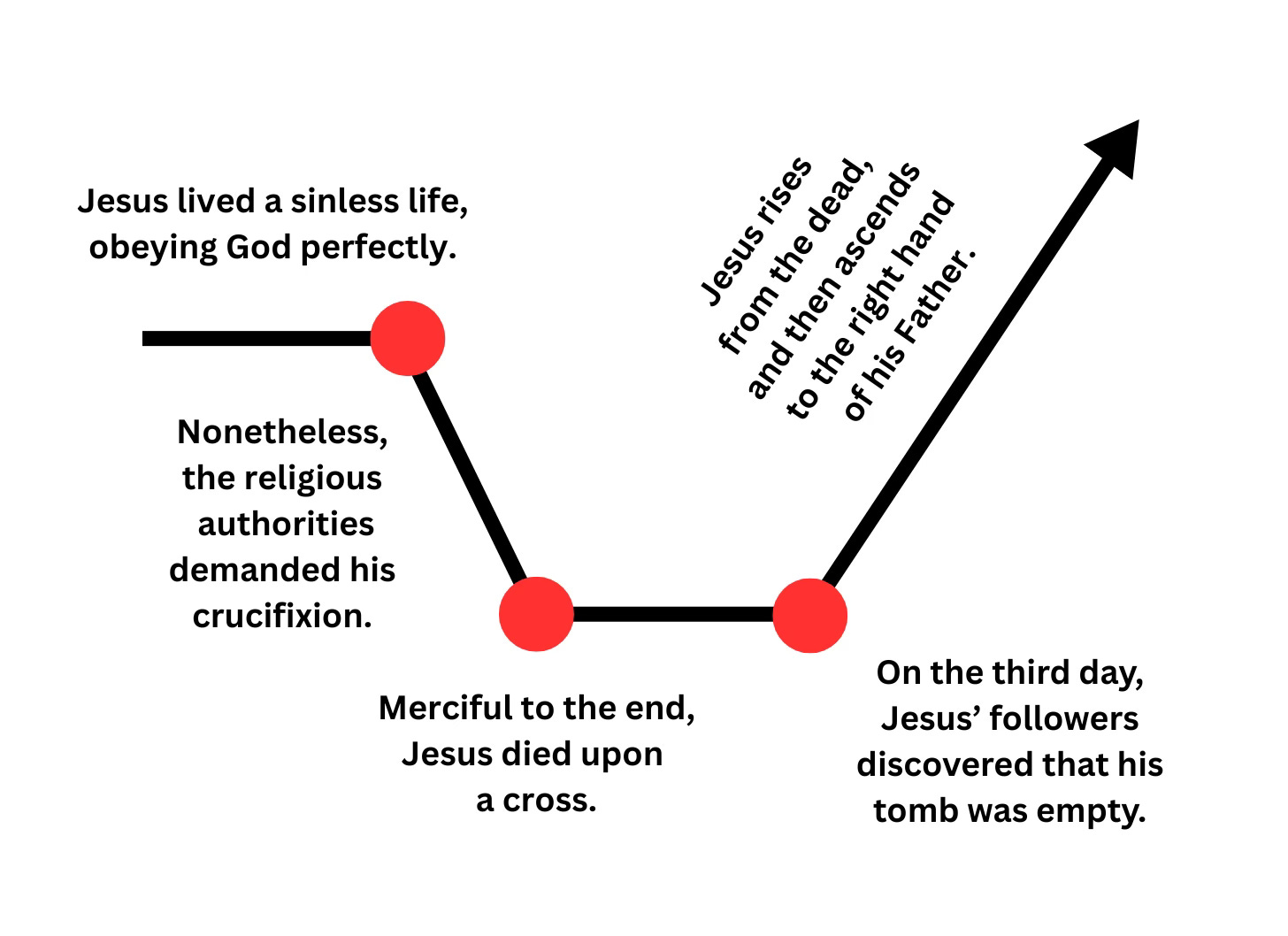
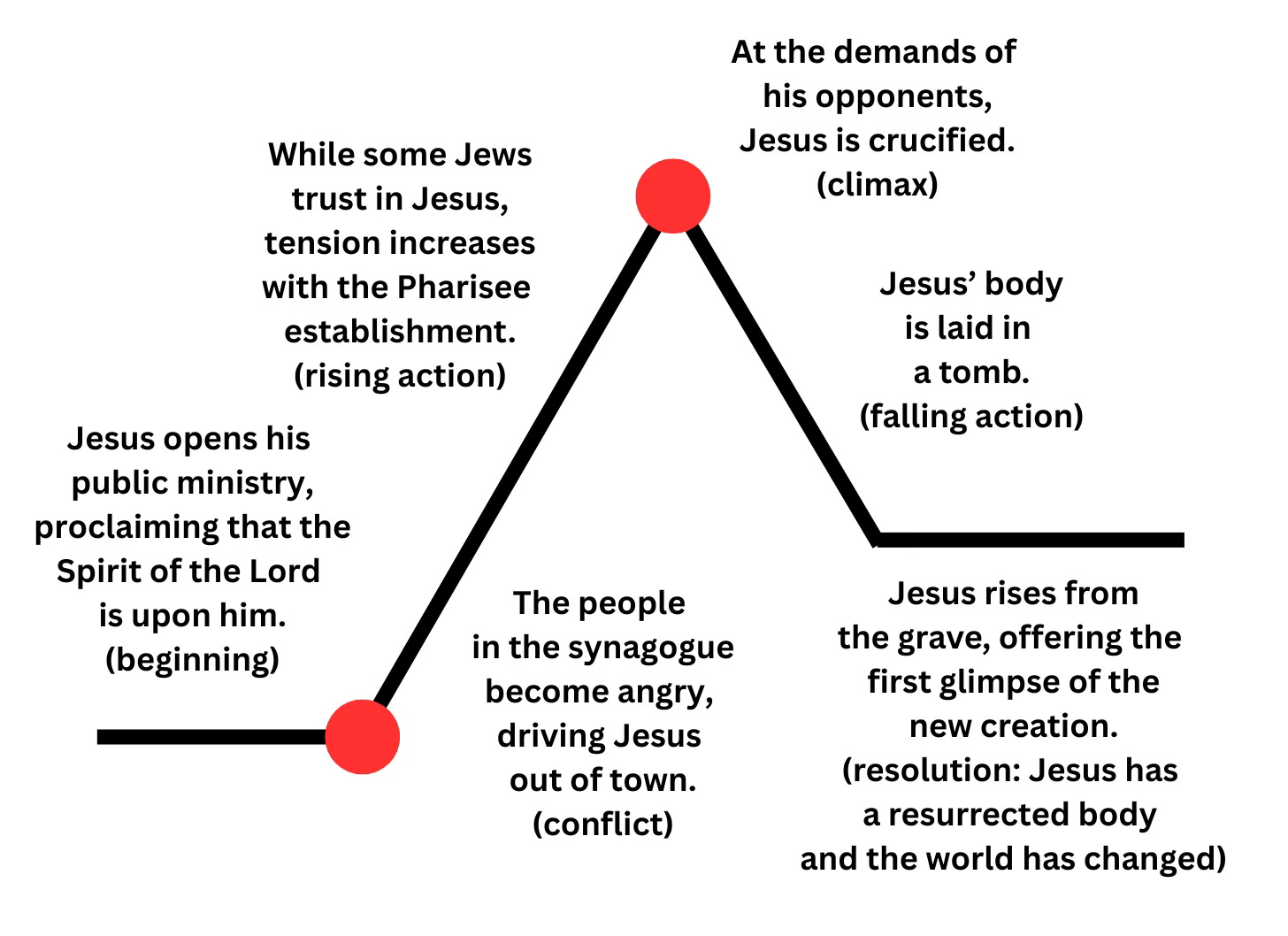
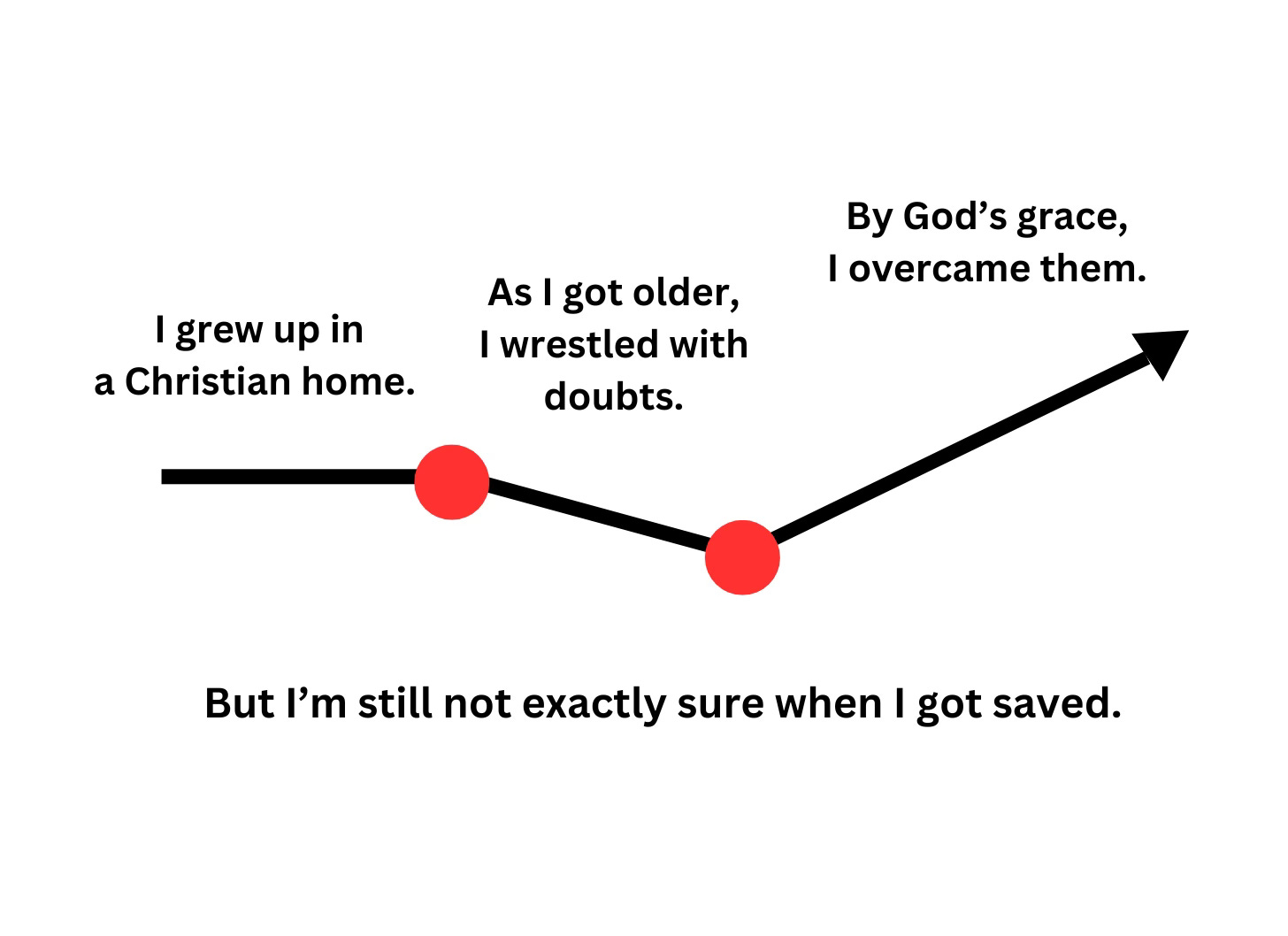
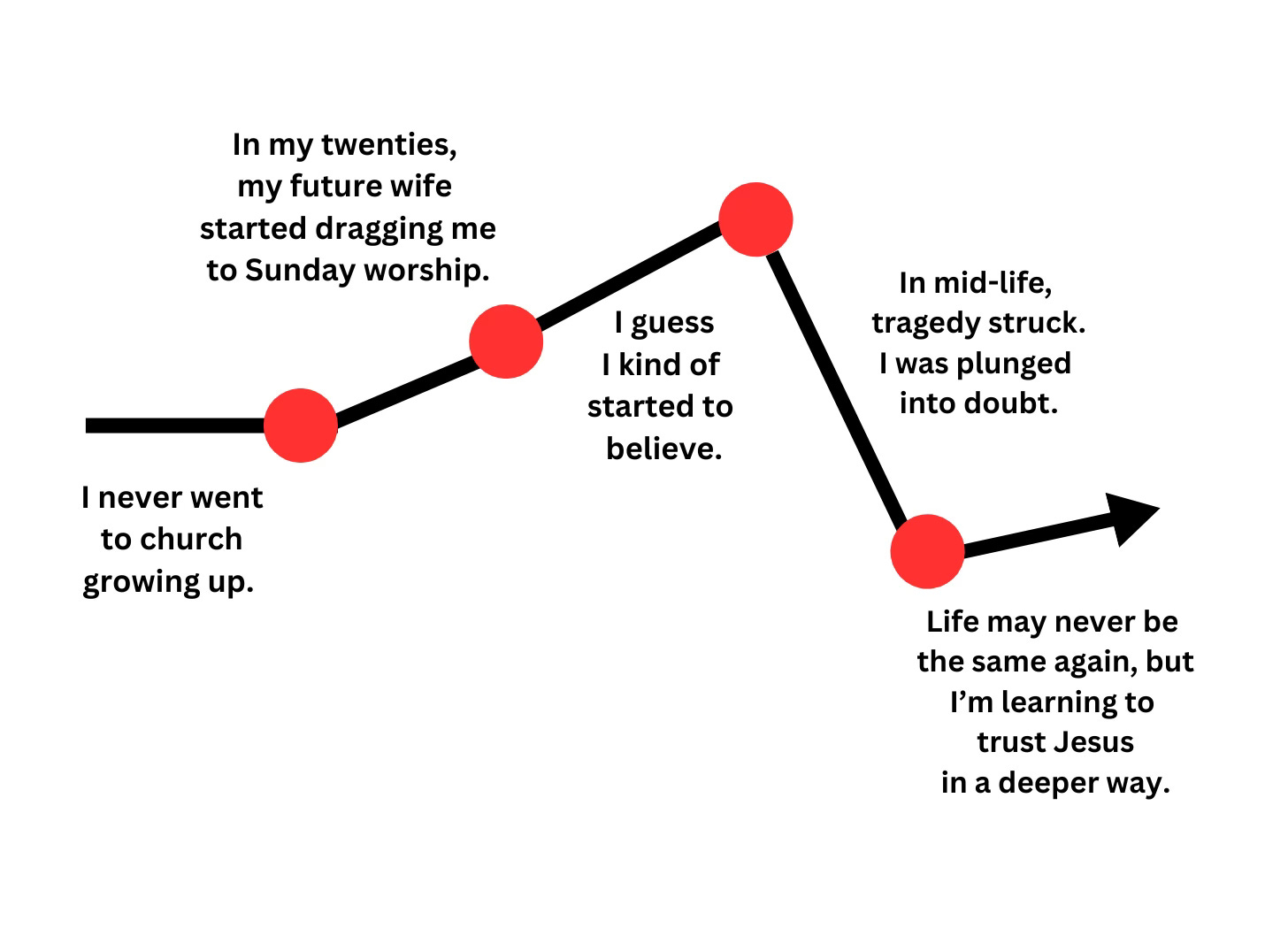
I do think we struggle for authenticity because of the expected patterns we have imposed upon personal testimony. This is very thought provoking.